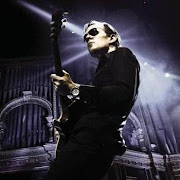I have, in the past, been accused of living in a bubble. First, while growing up in a nice, suburban community. And again, while attending a small liberal arts college. But while modern society is more connected than ever, thanks to the internet, I believe we are all living inside of bubbles - the walls of which are formed by the people we follow on social media. Before COVID-19, I'd never been in the habit of regularly watching the news, because it is frequently depressing, and I am more concerned with running my own life, than the affairs of others I have no influence over. But social media fulfills a purpose for me, both personally and professionally.
Personally, it affords me the opportunity to engage in an indirect form of socialization that is easier for me than face-to-face interaction. Because although I have social anxiety, I am still human, and humans are social creatures; no man is an island, as they say. Furthermore, it provides a level of intellectual stimulation (sadly, less from mutual interaction than just as a medium for expressing my thoughts) that my mind demands and is hard to satisfy by the lack of company I tend to cultivate around me (for my own comfort) - especially these days, while I'm hunkered down in isolation. And, professionally, it acts as a platform to grow my brand and advertise my business. It's not something I can easily just walk away from, even if I want to.
So, while it's easier than ever to stay abreast of current events, those events are frequently filtered through the opinions of others. Even news outlets are more than likely to hold some kind of bias. I hear about movements and scandals from the reactions of others - memes and trending topics - before I even know the facts of the situation, which are so hard to find. And how many other people are shaping their own reactions based on this incomplete picture? (This is all the more dangerous in a #cancelculture). And then we only ever hear the opinions of the voices that reach into our bubble. I believe this is a significant cause of the growing schism in our culture. I also believe it is an inevitable symptom of democracy, which is dying a slow death. When everyone has a voice, how do we decide which voices hold the most value? Is it only the ones we agree with? I increasingly feel the need for more context within which to digest the information I am bombarded with on a daily basis. Is it any wonder nobody knows who or what to believe anymore?
14 June, 2020
Subscribe to:
Post Comments (Atom)







No comments:
Post a Comment